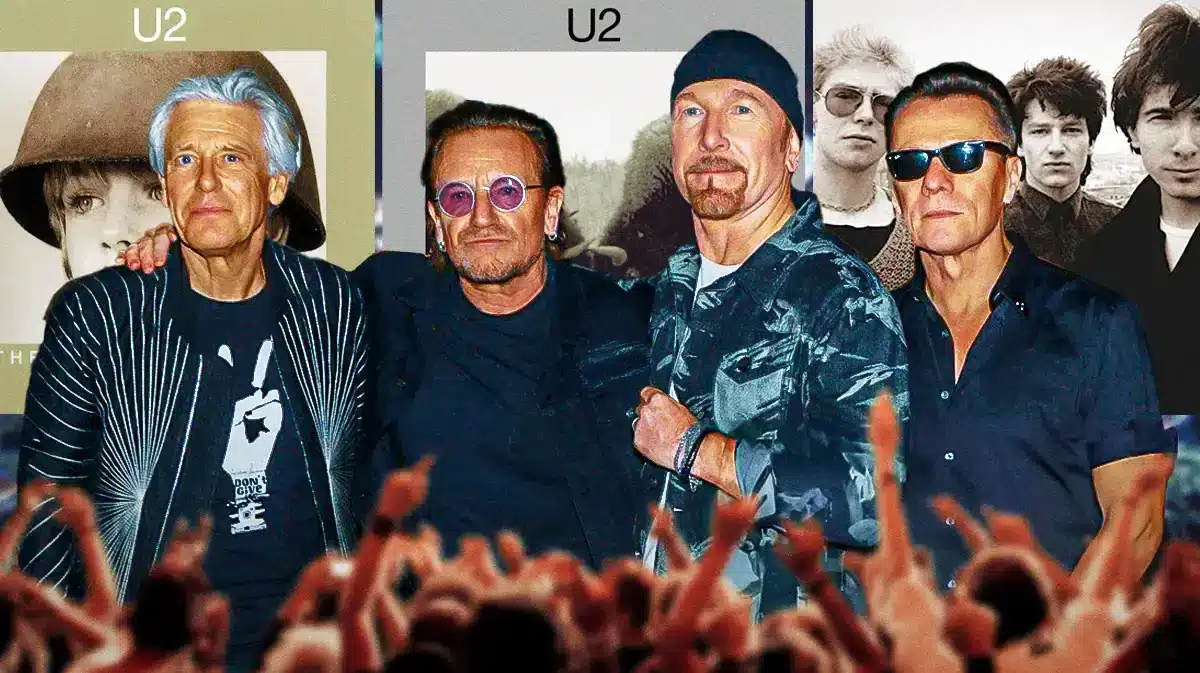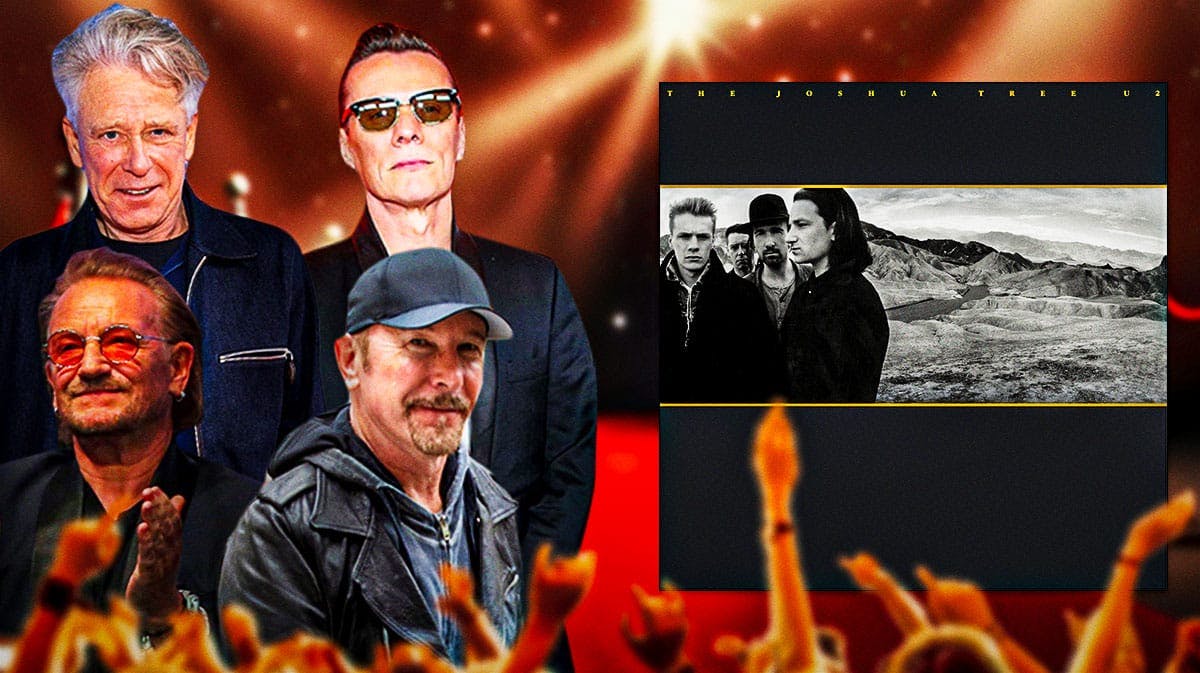“What is The Joshua Tree? I've seen it all around,” a young Gen Z'er asked me of my U2 hoodie.
I replied, telling her it was a famous album by U2. The maroon hoodie I was donning was from the 2017 thirtieth anniversary tour.
“I'm Irish and I don't even listen to U2,” the worker quickly replied with a laugh.
Surely, this is not a problem exclusive to Ireland's Gen Z demographic. It feels like my entire generation ignores the band unless it's to bring up their 2014 Songs of Innocence-iTunes fiasco.
And it sucks. Very few bands have had the legacy U2 has. And The Joshua Tree is a major reason the band is still relevant.
In fact, the album, which became a No.1 hit on April 25, 1987, is still relevant in the present day. Artists like Taylor Swift and Jennifer Lopez are comfortable regurgitating their old greatest hits in lieu of good new material. U2 still makes quality music, but The Joshua Tree is a timeless classic. Here's why Gez Z should give it a listen.
Why The Joshua Tree is iconic

Even if you've never gone out of your way to listen to U2, you probably have listened to portions of The Joshua Tree. The opening trio of songs, “Where the Streets Have No Name”; “I Still Haven't Found What I'm Looking”; and “With or Without You,” are some of the most popular songs ever.
“Where the Streets Have No Name” generates a euphoric feeling thanks to The Edge's guitar riff. It's a highlight of any live show that the band plays. “I Still Haven't Found What I'm Looking For” is a very grounded gospel song — Bono expresses his doubt over religion akin to how Martin Scorsese handles the subject matter in his films. “With or Without You” is a song popularly used; I've heard it at weddings and in TV shows alike.
But aside from the opening trio, the rest of the album is filled with gems. “Bullet the Blue Sky” is perhaps one of the band's most aggressive political songs, quite literally taking listeners on a journey to the scene in El Salvador. “Running to Stand Still” begins as a whisper but ends with a crashing crescendo as the story of heroine addicts plays out.
Vocal highlights
Songs like “Red Hill Mining Town” and “Trip Through Your Wires” aren't among U2's greatest hits. Even still, the songs are gems. In the former, Bono belts out to a degree unheard of since “Bad” from The Unforgettable Fire. The latter song is a fun homage to Americana music.
Bono once again shows off his vocal chords on “One Tre Hill.” Like most songs on The Joshua Tree, it's a slow burn. But once The Edge's solo hits and Bono begins shouting his “Rainin'” refrains, he hits a gear he rarely has since.
The Joshua Tree ends with a quiet cry for help. “Mothers of the Disappeared” takes its time getting going, as the band slowly comes in. Even Bono practically speaks out the verses before jumping into a falsetto-filled chorus.
A perfect desert landscape
What The Joshua Tree represents is a country as filled with limitless possibilities as America. It helps that U2's members grew up in Dublin during the Troubles. Surely America seemed like the golden land as it still does today.
That's why songs like “In God's Country” — which features the ever-present line “Every day dreamers die to see what's on the other side” — hit so hard. It captures what America looks like from the outside.
Several interpretations
The songs also have several meanings. Using the desert as a primary metaphor was a smart move employed by Bono. The desert is an open landscape. However, it's also filled with dry spots that aren't as beautiful as the open ones.
“I Still Haven't Found What I'm Looking For” is another prime example of a song that can be interpreted in several ways. On the surface, it seems to describe a love relationship. Bono is yearning to find the love he has yet to find. However, it's also interpreted as a gospel song of sorts, as perhaps the relationship Bono is talking about is his with God.
As mentioned, “With or Without You” is always thought of as a love song. Fair enough, but it's one of the most twisted ones ever. For yours truly, the song seems to be about Bono, who's adjusting to his newfound fame, and his relationship with Ali, his wife. As he becomes more famous, he's further giving himself away on stage and on his albums.
That's a new dynamic introduced into their relationship. And it goes a lot deeper than the obvious reading that one love can't live “with or without” their significant other.
U2's performance at the Super Bowl in 2002 also gave new meaning to “Where the Streets Have No Name.” The song describes a desert. As The Joshua Tree's opening track, the song sets the precedent with the ongoing metaphor. But what if the place with nameless streets is Heaven? After all, at the Super Bowl, Bono sang, “I'll show you a place with no sorrow or pain” instead of “I'll show you a place high on a desert plane” in the wake of 9/11.
Even more relevant in 2017
In 2017 (and 2019), U2 brought The Joshua Tree on tour. The initial 2017 tour was in conjunction with the album's thirtieth anniversary.
While the move could have been viewed as a lazy nostalgia cash grab, the album proved its relevance even 30 years later. “In God's Country” especially stood out as a track that felt relevant thanks to what was going on in politics at the time.
It was a dazzling show. U2 always shows out whether they are selling out stadiums or arenas. Being in MetLife Stadium with 70,000 others as the gigantic 4K-resolution screen brought the audience through the desert was special.
The Joshua Tree's lasting impact 37 years later
The Joshua Tree made U2 “Rock's Hottest Ticket” in 1987. They haven't looked back since.
It's an album largely about America, but the subtext suggests it's about a whole lot more. Without The Joshua Tree, would U2 still be around? It's a fair question, but thank goodness they still are.
Most musicians these days seem happy with inconsequential music that blabbers on about love and sex. U2 reached for the stars and made one of themselves with the album. Without it, the band wouldn't have had to reinvent themselves with Achtung Baby or once again with All That You Can't Leave Behind.
So, even if Gen Z chooses to ignore it, U2's Joshua Tree will be here long after the likes of Taylor Swift.
